In August of 2024, the Ryzen 9000 series hit the shelves, and the X870 chipset launched shortly afterwards, bringing marked improvements and refinements to the core technologies available on the AM5 platform. These boards bring better high-speed IO, widespread support for Gen5 components across the SSD and GPU slots, and better overclocking capabilities. But picking out the strongest board isn’t easy, with so many boards saturating the market and more likely to be released over time. So, what better way to determine the best X870 motherboards than by testing a range of these designs out?
This motherboard buyer’s guide provides an in-depth look at a selection of X870 boards, all of which are suited to various budgets and use cases. We’ve picked out boards for enthusiasts and options catering to those looking to save some cash. As always with our buyer’s guides, we’ll delve into each board’s specs, design, features, and pricing to determine its value proposition.
The Best X870 Motherboards
1. MSI MPG X870E CARBON WIFI

This is a very high-end motherboard designed for consumers who prioritise high power delivery, numerous USB ports, multiple M.2 slots, and multiple ways to connect to Wi-Fi. It can house up to 256GB of the latest DDR5 memory that can be overclocked up to 8400MT/s using the motherboard’s built-in XMP software. This motherboard is part of the MPG (MSI Performance Gaming) series that is developed with gamers in mind, who demand strong performance and elegant designs. This is definitely one of the more lavish motherboards that offer premium features and top-of-the-range specs.
| Specification | MSI MPG X870E CARBON WIFI |
|---|---|
| Form Factor | ATX |
| Supported Memory | 256GB DDR5 8400 – 5600 (OC) MT/s |
| PCI-E x16 Slots | 1 x PCI-E 5.0 2 x PCI-E 4.0 (x4 max each) |
| PCI-E x4 Slots | 1 x PCI-E 5.0 1 x PCI-E 4.0 |
| VRM Power Phases | 18+2+1 |
| Front IO | 4x USB 2.0 Type-A 4x USB 5Gbps Type-A 1x USB 20Gbps Type-C |
| Rear IO | 9x USB 10Gbps Type-A 2x USB 10Gbps Type-C 2x USB 40Gbps Type-C |
| Audio | 1 x Optical S/PDIF 2 x Audio Jacks (mic + headphone) |
| Networking | 2.5G LAN 5G LAN WiFi 7 |
Equipped with the latest Gen5 Graphics card and SSD slots, as well as Gen4 SSD slots, this motherboard will give you the option to have multiple storage devices at the fastest broadband speeds, levelling up your overall gaming experience. This board features an 18+2+1 VRM power phase configuration, providing overclocking support that enables you to boost your maximum RAM speeds to 8400MT/s.
The MSI MPG X870E CARBON WIFI has three different Wi-Fi connection methods and Bluetooth 5.4 support. MSI’s premium network solution offers incredible data transfer speeds through a high-bandwidth, low-latency network, featuring 5G or 2.5G LAN and Wi-Fi 7. The motherboard also comes with a Wi-fi antenna that has a magnetic stand.
With this motherboard being on the more expensive end, it’s nice to see two USB4 Type-C ports (40 Gbps), two USB 3.2 Gen2 Type-C ports (10 Gbps), and a whopping nine USB 3.2 Gen2 Type-A ports on the rear IO. There are a generous number of options for USB connectivity, and they all have brilliant data transfer rates.
The features that let this motherboard down are the limitations on the x16 PCIe 4.0 slots, which are capped at x4, the high power draw results in hotter temperatures under heavy load and some older peripherals may not be compatible with the newer generation USB ports on the rear IO.



2. Gigabyte X870 AORUS Elite WiFi7

The Gigabyte X870 AORUS Elite WiFi7 is a well-rounded motherboard for the price-conscious. The X870 chipset generally includes a mixture of high-end motherboards and mid-range boards with slightly reduced features to remain cheaper. The Gigabyte X870 AORUS Elite WiFi7 is the latter of these options. But despite being more affordable than other X870 boards we’ve looked at, it is still very well-equipped.
On the expansion front, there is a Gen5 graphics card slot ready for the next generation of GPUs, alongside three Gen5 SSD slots and a single Gen4 slot for those looking to increase storage to the maximum. This board has a 16+2+2 VRM power phase configuration for overclocking support, which is more than enough to push your boost clock speed, and RAM caps out at 8000MT/s.
| Specification | Gigabyte X870 AORUS Elite WiFi7 |
|---|---|
| Form Factor | ATX |
| Supported Memory | 256GB DDR5 8000MT/s |
| PCI-E x16 Slots | 1 x PCI-E 5.0 1 x PCI-E 4.0 |
| PCI-E x4 Slots | 3 x PCI-E 5.0 1 x PCI-E 4.0 |
| VRM Power Phases | 16+2+2 |
| Front IO | 1 x USB 3.2 Gen2x2 Type-C 1 x USB 3.2 Gen1 Type-A 2 x USB 2.0 |
| Rear IO | 2 x USB4 Type-C 4 x USB 3.2 Gen1 Type-A 4 x USB 2.0 2 x USB 3.2 Gen2 Type-A |
| Audio | 1 x Optical S/PDIF 2 x Audio Jacks |
| Networking | 2.5 Gigabit LAN WiFi 7 |
For IO, this is where we’re starting to see a degree of cost-cutting. There are twelve ports in total. Four of these are USB 2.0, which is a shame, but there’s still a good selection of USB ports. The rest of the rear IO comprises two USB4 Type-C ports, four USB 3.2 Gen1 Type-A ports, and two USB 3.2 Gen2 Type-A ports. Audio is reasonably basic, with one optical S/PDIF and two 3.5mm audio jacks. As for networking, the X870 AORUS Elite WiFi7 uses the same ports as the ROG Strix X870-A Gaming WiFi, which is 2.5 Gigabit LAN and WiFi 7.
The most significant caveat of this motherboard is its feature set and design. The connectivity has some drawbacks, such as the USB 2.0 ports, which are likely included to bulk out the selection of ports on offer alongside the restricted audio options. However, as an affordable motherboard, this isn’t a deal-breaker for us, and this is a board that we’d recommend to those on a budget.



3. ASUS TUF Gaming X870-Plus WiFi

ASUS TUF Gaming motherboards are a mainstay in the market, and this TUF Gaming X870-Plus WiFi is a solid mid-range board geared towards those looking to save some cash. We’re big fans of the ASUS TUF range because they’re designed for one specific purpose – great value and low pricing. The current range of X870 boards is quite pricey, so the TUF Gaming X870-Plus WiFi is a somewhat cheaper alternative.
Regarding overclocking, the TUF Gaming X870-Plus WiFi supports RAM speeds up to 8000MT/s and has a 16+2+1 VRM power phase configuration, enough to sustain a decent boost clock speed. For expansion, builders have access to a single Gen5 GPU slot, two Gen5 SSD slots, and two Gen4 SSD slots, so there’s plenty of room to upgrade once new components are released.
| Specification | ASUS TUF Gaming X870-Plus WiFi |
|---|---|
| Form Factor | ATX |
| Supported Memory | 192GB DDR5 8000MT/s |
| PCI-E x16 Slots | 1 x PCI-E 5.0 1 x PCI-E 4.0 |
| PCI-E x4 Slots | 2 x PCI-E 5.0 2 x PCI-E 4.0 |
| VRM Power Phases | 16+2+1 |
| Front IO | 1 x USB 3.2 Gen2x2 Type-C 1 x USB 3.2 Gen1 Type-A 2 x USB 2.0 |
| Rear IO | 2 x USB4 Type-C 3 x USB 3.2 Gen2 Type-A 4 x USB 3.2 Gen1 Type-A 1 x USB 2.0 |
| Audio | 5 x 3.5mm Audio Jacks |
| Networking | 2.5 Gigabit LAN WiFi 7 |
The number of USB ports on the TUF Gaming X870-Plus WiFi is slightly more limited compared to other boards in this roundup, but the rear IO is primarily made up of high-speed ports, of which there are ten in total. There are slightly more audio options overall, with five 3.5mm jacks, opening up options for those with speaker setups. As expected, this board features 2.5 Gigabit LAN and WiFi 7 for networking, a mainstay across most X870 motherboards.
In terms of cons, I think the main weakness of the TUF Gaming X870-Plus WiFi is its aesthetic. I’m a fan of the industrial design, but we can understand why it won’t appeal to everyone, especially if you opt for a more neutral black theme. However, I think the TUF Gaming X870-Plus WiFi offers an excellent value proposition overall.



4. ASUS ROG Strix X870-I Gaming WiFi

The ASUS ROG Strix X870-I Gaming WiFi is a Mini-ITX motherboard designed for those building a small-form-factor gaming PC. While this motherboard is small, it is incredibly mighty. Equipped with a Gen5 graphics card slot and two SSD slots (one Gen5 and one Gen4), this small board offers solid expansion options to maximise performance and storage capacity.
Because of its small form factor, RAM capacity is limited to 96GB at the maximum, but it can be overclocked to 8400MT/s, which is great to see. The ROG Strix X870-I Gaming WiFI also isn’t specifically geared towards overclocking. So, the VRM power phase configuration (at 10+2+1) is slightly weaker than the ATX boards we’ve looked at, which have more robust cooling for the VRMs.
| Specification | ASUS ROG Strix X870-I Gaming WiFi |
|---|---|
| Form Factor | Mini-ITX |
| Supported Memory | 96GB DDR5 8400MT/s |
| PCI-E x16 Slots | 1 x PCI-E 5.0 |
| PCI-E x4 Slots | 1 x PCI-E 5.0 1 x PCI-E 4.0 |
| VRM Power Phases | 10+2+1 |
| Front IO | 1 x USB 3.2 Gen2 Type-C 1 x USB 3.2 Gen1 Type-A ROG Strix Hive II – 2 x USB 3.2 Gen2 (Type-A & Type-C) ROG FPS Card – 2 x USB 2.0 |
| Rear IO | 2 x USB4 Type-C 4 x USB 3.2 Gen2 Type-A 1 x USB 3.2 Gen2 Type-C 3 x USB 2.0 |
| Audio | ROG Strix Hive II – 1 x 3.5mm Combo Jack |
| Networking | 2.5 Gigabit LAN WiFi 7 |
Front IO connectivity is somewhat limited out of the box, but installing the ROG Strix Hive II and ROG FPS Card (included) opens up the port selection with additional USB 3.2 Gen2 and USB 2.0 headers. On the rear, ASUS has included two USB4 Type-C ports, five USB 3.2 Gen2 Type-A ports, and three USB 2.0 ports, an excellent set of options despite this board’s size. For networking, prospective buyers can utilise the 2.5 Gigabit LAN port, or WiFi 7 for those who prefer a wireless setup.
This motherboard’s most apparent weakness is its size, which limits its features. If you’re used to a traditional ATX motherboard experience with ample headers, ports, and slots, then Mini-ITX boards will come as a bit of a shock. Sacrifices have to be made to slim down the size of the PCB, which means there are fewer RAM DIMMs, PCI-E slots, and internal connections. However, ASUS has done their best to improve this by providing the ROG Strix Hive II and FPS card add-ons.





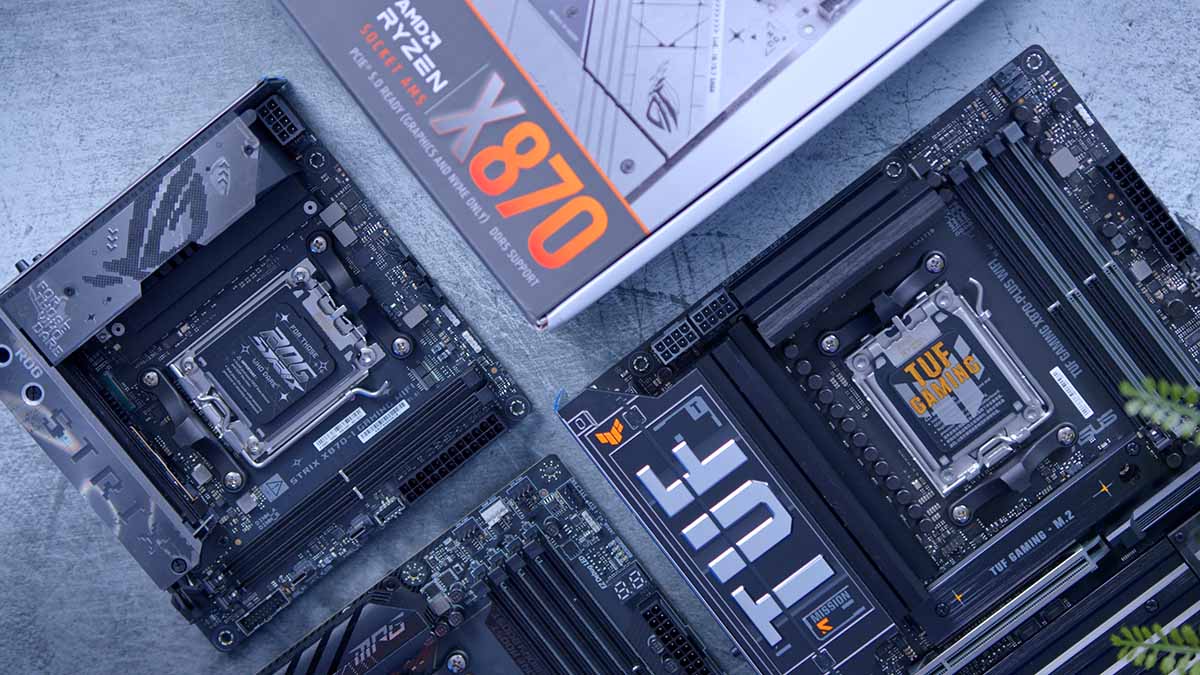
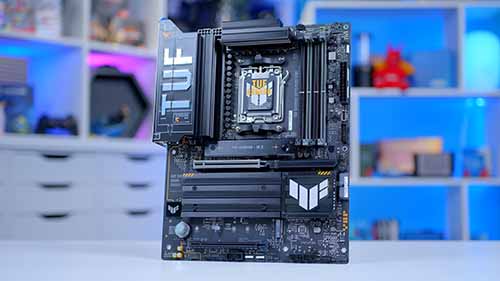
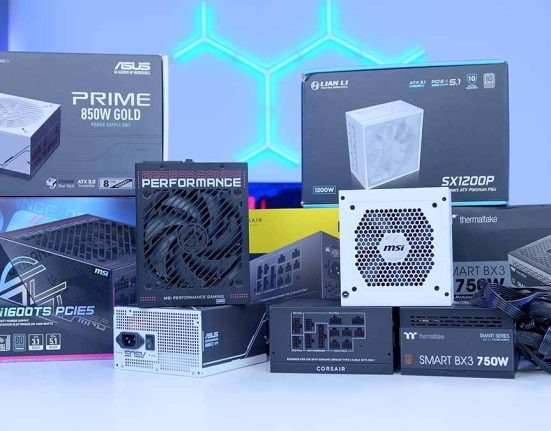
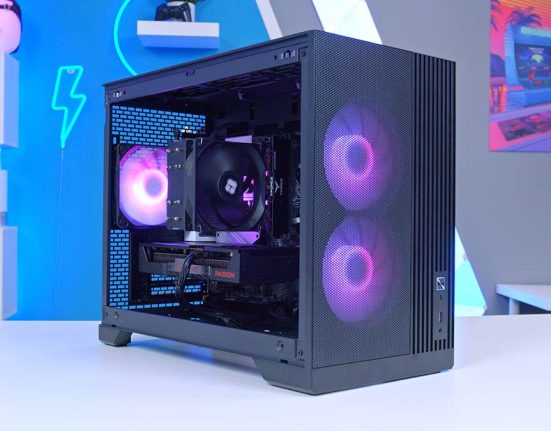
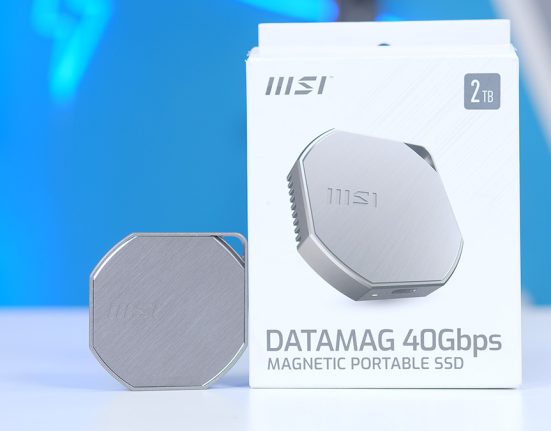
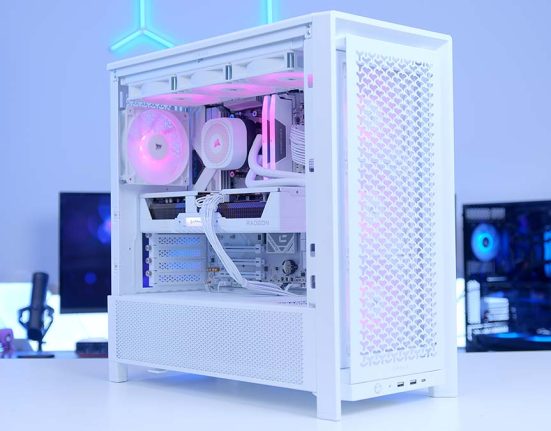
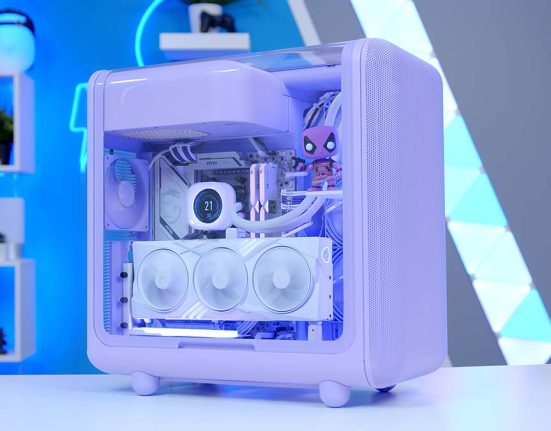
![FI_[DM87] HAVN BF & RTX 5090 Build](https://geekawhat.com/wp-content/uploads/2026/01/FI_DM87-HAVN-BF-RTX-5090-Build-551x431.jpg)